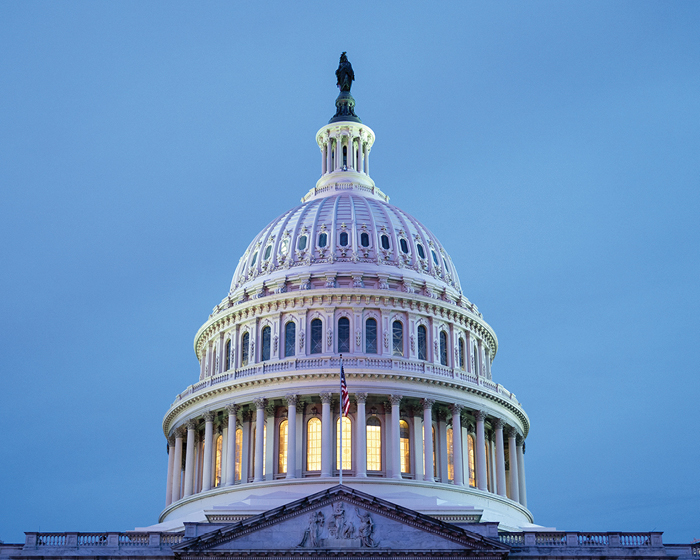Key Takeaways
- Less than a month after Congress passed massive tax and spending legislation, there’s chatter that it might try for a second bill.
- The legislation could include provisions dropped from the recent law, including a tax cut for pass-throughs.
- The lack of urgency for a second bite at the apple makes it a longshot effort.
- In the meantime, Republicans are working on a tax bill for cryptocurrencies.
- New tax bill brings Opportunity Zones to rural Trump districts.
These days, Hollywood is addicted to sequels. Why take a chance on something original, if you have an existing franchise that will guarantee to put people in the theaters? They can be hit or miss, though—for every “Godfather, Part 2” or “Empire Strikes Back,” there are at least a dozen forgettable entries like “Jaws 2” or “Psycho II.”
How about with legislation? The ink is barely dry on the so-called One Big Beautiful Bill Act, signed into law on July 4, and implementation has barely begun. But already, there’s some talk of Republicans doing a second reconciliation bill sometime this year, or in early 2026, with a focus on tax legislation. Technically, Congress can pass at least one more bill through the reconciliation procedure in 2025, avoiding a Democratic filibuster. Republican staffers are reportedly calling a potential second bill “2 Big 2 Beautiful,” referring to the memorably titled second Fast & Furious film.
At this point it’s mostly just speculation, and it would be a longshot, but after the Republican Congressional majority’s surprising legislative victory with the OBBB, it’s hard to completely dismiss the idea of an OBBB sequel. (Or if the original was the 2017 Tax Cuts and Jobs Act, which the OBBB extended, then a new bill would be the third in a trilogy.)
Sequels often recycle ideas from the successful first movie, or resurrect concepts that the filmmakers wanted to include but had to cut. Likewise, a new reconciliation bill would likely include leftovers from the OBBB process. One of those, floated in a recent Ernst & Young LLP talk by Curtis Beaulieu, a senior Republican tax staffer in the House of Representatives, could be a hike in the deduction available for pass-through entities like sole proprietorships or partnerships. Legislation passed by the House of Representatives would have raised the rate from 20% to 23%, but the final bill permanently extended the 20% rate. The bill could also include corrections to the OBBB, if taxpayers find mistakes in the coming months.
Beaulieu also said there were revenue-raisers that lawmakers didn’t include because they hoped to use them in later legislation, such as a new bipartisan package of retirement changes, “SECURE 3.0,” after 2022’s SECURE 2.0 and the 2019 SECURE Act. That’s another potential vehicle for new tax changes, if the parties can get together to make a deal—not a given in today’s cantankerous Washington.
It’s not known what revenue-raisers they are considering, but there are plenty of public proposals out there.
The OBBB made much of the tax code permanent, removing some expirations that could have forced Congress to come up with new tax legislation in the coming years. There are still some—new tax benefits such as the exemption for tips and overtime expire at the end of 2028, and the $40,000 limit on deductions for state and local taxes will revert to $10,000 in 2030. But the bulk of the bill is permanent, which Congress ensured despite the significant cost.
There was great urgency behind the OBBB—renewing the chief legislative accomplishment from President Trump’s first term was seen by Republicans as a necessity, which they were willing to make compromises to accomplish. (That’s also the reason behind its title, as lawmakers thought one bill would be harder to vote against.) Without a “must-do” impulse, it will be hard for Republicans to put together another tax package in the near future. But it’s not something to count out completely.
Recent Tax Pieces:
GOP’s ‘No Tax on Tips’ Falls Short for Las Vegas Taxwriter – Katie Lobosco, Tax Notes ($):
The congressman said he believes tipped workers deserve tax relief because many are paid rates lower than the federal minimum wage and face uncertainty about the amount of tips they may receive.
“A tip is a gift. It’s not a guarantee,” Horsford said.
Crypto on Tap After Tax Megabill, but Goodwill in Short Supply – Chris Cioffi, Bloomberg Tax:
“We have spent so much time on this foolish, awful bill that I don’t know if they have bandwidth to do anything else,” said Ways and Means member Rep. Linda Sánchez (D-Calif.) after casting her vote against the tax bill.
Foreign Entity Rules Likely to Stifle Energy Tax Credit Claims – Erin Schilling, Bloomberg Tax ($):
“This is absolutely choking the ability for projects to contract right now,” said Hilary Lefko, a Norton Rose Fulbright partner.
GOP Reshapes Opportunity Zones to Target Trump Country – Richard Rubin and Ruth Simon, The Wall Street Journal:
“The challenge isn’t Opportunity Zones. The challenge is rural,” said Alex Flachsbart, chief executive officer of Opportunity Alabama, a nonprofit that works with Opportunity Zone sponsors and communities and manages its own fund. “An Opportunity Zone designation does not magically reverse trends or create assets where there aren’t any. What it does is elevate communities that would otherwise be overlooked.”.
Reconciliation Bill Business Breaks Raise Many Questions – Nathan Richman, Tax Notes ($):
Make a habit of sustained success.



